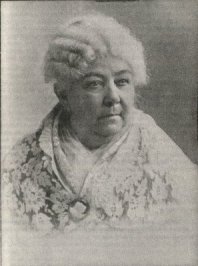

Genesis xxv
IN these verses we have the account of Abraham's second marriage, and the birth of several sons. It does not seem clear from the text whether Keturah was a legal wife, or one of the Patriarch's numerous concubines. Clarke inclines to the latter idea, on account of Abraham's age, and then he gave all that be had to Isaac, and left Keturah's sons to share with those of other concubines, to whom he gave gifts and sent them away from his son Isaac to an eastern country. Abraham evidently thought that the descendants of Isaac might be superior in moral probity to those of his other sons, hence he desired to keep Isaac as exclusive as possible. But Jacob and Esau did not fulfill the Patriarch's expectations. Esau in selling his birthright for a mess of pottage, and Jacob taking advantage of his brother in a weak moment, and overreaching him in a bargain, alike illustrate the hereditary qualities of their ancestors.
Genesis xxvi
The account of the private family affairs of Isaac and Rebekah; their partiality to different sons; Jacob, aided and abetted by his mother, robbing his elder brother of both his birthright and his father's blessing; the parents on one of their eventful journeys representing themselves as brother and sister, instead of husband and wife, for fear that some potentate might kill Isaac, in order to possess his beautiful wife; all these petty deceptions handed down from generation to generation, show that the law of heredity asserted itself even at that early day.
Abraham through fear denied that Sarah was his wife, and Isaac does the same thing. The grief of Isaac and Rebekah over Esau, was not that he took two wives, but that they were Hittites. Chapter xxvii gives the details of the manner that Jacob and his mother betrayed Isaac into giving the blessing to Jacob intended for Esau. One must read the whole story in order to appreciate the blind confidence Isaac placed in Rebekah's integrity; the pathos of his situation; the bitter disappointment of Esau; Jacob's temptation, and the supreme wickedness of Rebekah in decieving Isaac, defrauding Esau, and undermining the moral sense of the son she loved.
Having entirely undermined his moral sense, Rebekah fears the influence of Jacob's marriage with a daughter of the Hittites, and she sends him to her own people, to find a wife in the household of her uncle Laban. This is indeed a sad record of the cruel deception that Jacob and his mother palmed off on Isaac and Esau. Both verbally and practical lying were necessary to defraud the elder son, and Rebekah was equal to the occasion. Neither she nor Jacob faltered in the hour of peril. Altogether it is a pitiful tale of greed and deception. Alas! where can a child look for lessons in truth, honor, and generosity, when the mother they naturally trust, sets at defiance every principle of justice and mercy to secure some worldly advantage. Rebekah in her beautiful girlhood at the well drawing water for man and beast, so full of compassion, does not exemplify the virtues we looked for, in her mature womanhood. The conjugal and maternal relations so far from expanding her most tender sentiments, making her heart from love to, one grow bountiful to all, seem rather to have narrowed hers into the extreme of individual selfishness. In obedience to his mother's commands, Jacob starts on his journey to find a fitting wife. If Sarah and Rebekah are the types of womanhood the Patriarchs admired, Jacob need not have gone far to find their equal.
In woman's struggle for freedom during the last half century, men have been continually pointing her to the women of the Bible for examples worthy imitation, but we fail to see the merits of their character, their position, the laws and sentiments concerning them. The only significance of dwelling on these women and this period of woman's history, is to show the absurdity of pointing the women of the nineteenth century to these as examples of virtue.
E.C.S.
Keturah is spoken of as a concubine in I Chronicles i, 32. As such she held a recognized legal position which implied no disgrace in those days of polygamy, only the children of these secondary wives were not equal in inheritance. For this reason the sons of Keturah had to be satisfied with gifts while Isaac received the patrimony. Notice the charge of Abimelech to his people showing the high sense of honor in this Philistine. He seems also in the 10th verse to have realized the terrible guilt that it would have been if one of them had taken Rebekah, not knowing she was Isaac's wife. With all Rebekah's faults she seems to have had things her own way and therefore she did not set any marked example of wifely submission for women of to-day to follow. Her great error was deceiving her husband to carry her point and this is always the result where woman is deprived in any degree of personal freedom unless she has attained high moral development.
C.B.C.